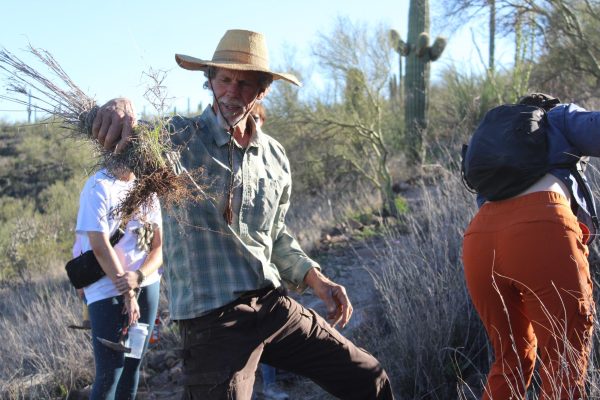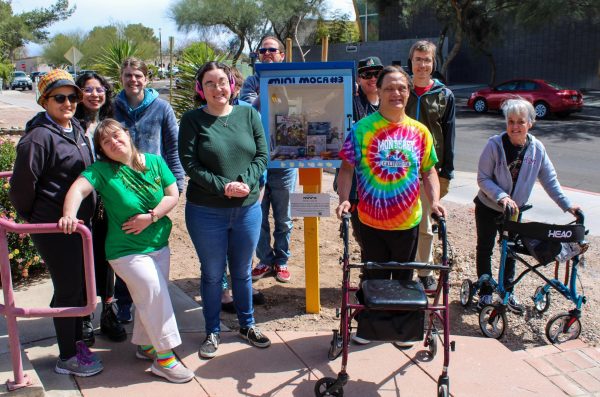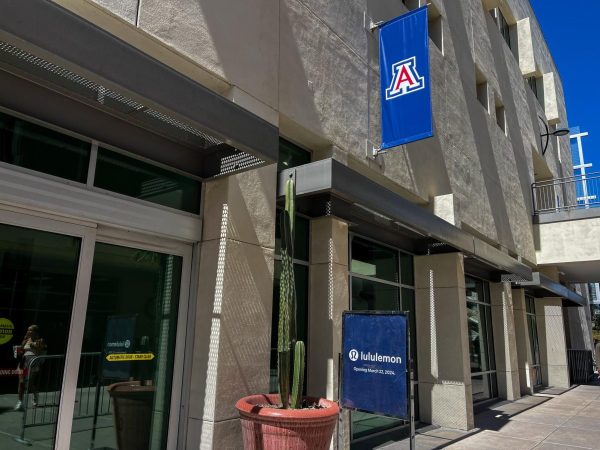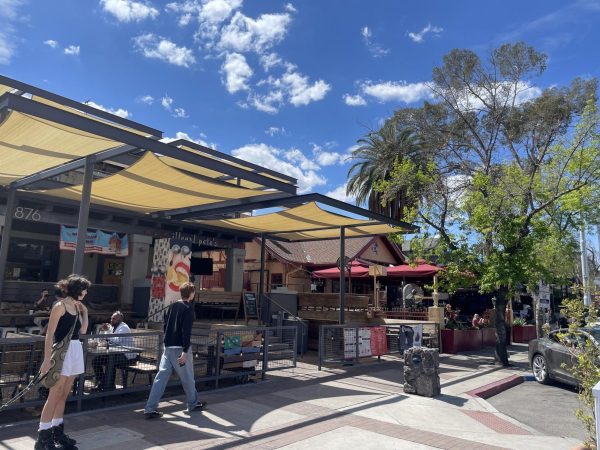Sound Offs: Skateboarders, Internet privacy, and your favorite television shows
November 17, 2011
As the frenzy before final exams begin, all of the students get rushed as they try to get to the classes they’ve been skipping out on all semester. The UA Mall becomes congested and traffic rules don’t seem to apply. Pedestrian lanes are packed. With people pushing through throngs of visitors and locals. Then, there are the bicycle lanes, with students pedaling non-walkable distances. Then, there are the many students on skateboards.
Skateboarding is not walking. It is not bicycling. So where do they belong? Skateboarders need to get around and have just as much right to as anyone. However, there are obvious issues with traffic congestion, and safety. A skateboard cannot go in the bicycle lane because it is not a bicycle. A skateboard has wheels though, and they move much faster than the average walker so you can see the difficulties there too.
Why not put a skateboard lane on campus? The UA has such a quaint and small-town college feel, but let’s be realistic. With more people, there are more forms of transportation and more people attempting to get to classes at any speed necessary. While all people prefer different ways to get to class, there are enough skateboarders that a quick paint job on the pavement will not hurt anyone. In fact, the extra lane might even help prevent the likelihood of a collision. But of course, that depends on whether the student sending three texts while updating Facebook and calling her ‘bestie’ has time to look up and pay attention to where she’s walking.
— Megan Hurley is a journalism sophomore. She can be reached at letters@wildcat.arizona.edu.
What I do with my computer is my business
The government should not be regulating the Internet in any way.
Congress is hearing two bills that are designed, according to the bill writers, to protect American citizens from websites with “no significant use.” Technically it will focus on piracy and counterfeiting sites. But this is a gateway into a terrible situation.
Who is going to determine how “useless” a site is? I don’t need someone telling me what I can and cannot do in my house, on my computer using a public technology.
What’s to stop this from avalanching into banning streaming movies that contain illegal activity or making it so you can’t curse on the web? Suddenly porn gets censored and photos of a high school kid with a red cup lead to officers at the front door?
The Senate’s PROTECT IP Act says it will target just the owners of the sites. I somehow don’t think it will end there. (See users of Napster.)
It would also allow the government to delete links to sites or even access to sites without notifying anyone. Great, so now we have the U.S. government acting as an online policeman with the power to delete links it doesn’t like? No. Screw that.
The Senate act will cost around $47 million and create 26 new government positions. We don’t need more government supervision and if they have an extra $47 million sitting around, how about they use it to pay off the national debt, and stay the hell away from my Mozilla?
— Michelle A. Monroe is a journalism senior. She can be reached at letters@wildcat.arizona.edu.
Only you can save a sinking television show
Recently there has been buzz that “Arrested Development,” perhaps the greatest example of a cult TV show, will return in a short episode arc and then as a movie. The only thing larger, it seems, than the jubilation for the show’s possible return was the outrage when the show was cancelled. What is the world coming to, people would say, when show’s like “Arrested Development” (or any of the other ‘good shows’) are canceled far before their time? And why in goodness’ name could a great show die out while a horrible show (the much maligned “Jersey Shore” comes to mind) lives on with impunity? What are we, the ordinary viewers, to do? Well, worry no more, for as some lucky individuals have recently discovered, American television is a highly imperfect democracy. In this system, the elections are called ‘sweeps’, the voters are an elite of ordinary viewers, and the almighty filter through which the people’s voice is heard are the Nielsen ratings.
Four times yearly the mighty Nielsen sends out a TV viewing diary to a lucky few ‘Nielsen families.’ For one week, these vanguards of viewership record the shows they watch. When finished, they send their diaries back to Nielsen headquarters, where numbers are compiled. Total viewership and, more importantly, demographic information is then used by the TV networks to set ad rates, the revenue from which ultimately pays for the TV Americans love to watch. Technology is improving, of course, and so are some of the methods that Nielsen uses to gather their information. As with many old institutions, however, Nielsen ratings and the ‘families’ they gather them from remain an important part of what does and does not remain on television.
Though fraught with even greater problems than our political democracy, our television democracy still gives a chance for the people’s voice to be heard. So what can the ordinary American viewer do to keep their favorite shows on TV? Quite simply, find a friend during sweeps and tune in. The numbers will show that people are watching. It may not entirely keep a show on air, but like they say, one vote doesn’t win an election therefore one viewer doesn’t save a show. So quit your grumbling about dumb shows and tune into the good ones. In time, things ought to work out.
—Andrew Conlogue is a junior studying philosophy, politics, law and economics. He can be reached at letters@wildcat.arizona.edu.












